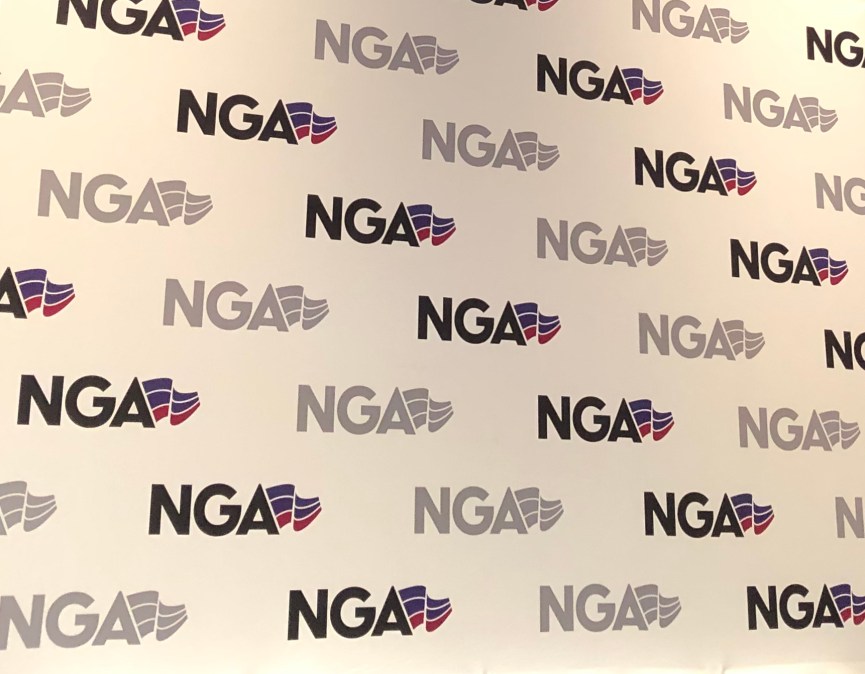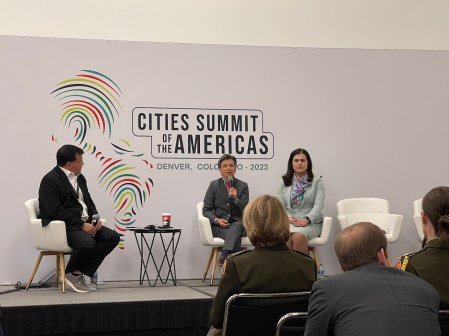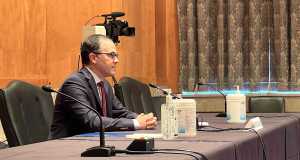Election disinformation fight offers lessons for pandemic, NGA says

As the delta variant complicates the COVID-19 pandemic, a memo published this week by the National Governors Association suggests that state governments can fight the spread of misinformation and disinformation about the health crisis by following the actions that many voting and cybersecurity officials took last year to dispel falsehoods about the election.
Among the suggestions the memo includes are the elevation of “trusted voices” — including local officials, medical professionals and religious leaders — in spreading awareness about the danger of the coronavirus and efficacy and availability of vaccines, robust public education and media campaigns and greater authentication of information sources, like placing them on sites residing on the .gov domain.
The memo acknowledges that, nearly eight months into the United States’ vaccination effort, the process remains highly politicized and targeted aggressively by social-media campaigns and high-profile individuals seeking to discredit it.
“The COVID-19 vaccination effort has been heavily politicized and besieged by false information,” the document reads. “With under 60 percent of the U.S. population above 12 years old fully vaccinated and the highly contagious Delta variant the dominant strain in the U.S., messaging around the safety, efficacy and urgency of the vaccine remains a critical public safety priority.”
Clear communication
The NGA encouraged its members to use their perches atop state governments to continue holding press conferences with health officials and others who can attest for the efficacy and importance of vaccinations.
“Communications should be clear on the science behind the vaccine and its side effects and any risks involved, while also reinforcing the individual and social benefits of the vaccine,” the memo states.
But the public education component may be more critical to building resilience to to misinformation and disinformation, the report continues. Looking back to 2020 and the many attempts to discredit components of the election process like mail ballots and the provenance of voting equipment — an experience some officials compared to a “whack-a-mole” game — the NGA argues for a similar response to anti-vaccine efforts.
Rumor control
Several statewide election officials created websites last year to debunk lies about the voting process, the memo notes, while the the U.S. Cybersecurity and Infrastructure Security Agency created a “rumor control” page, which corrected falsehoods about the election despite political retribution from then-President Donald Trump.
An NGA spokesperson told StateScoop that many states have added to their vaccine websites thorough guides designed to rebut disinformation and misinformation about COVID-19 and the inoculation process. Maryland, where nearly 60% of residents are fully vaccinated, has a “rumor control” page to counter myths ranging dangers to pregnant women to unfounded conspiracies about whether the doses contain microchips.
In Colorado, the state Department of Public Health and Environment, the Emergency Operations Center and secretary of state’s office collaborated on a lengthy guide with answers to dozens of frequently asked questions about the vaccines’ development, the immunization process, health concerns and how to look up vaccine records.
Like Maryland, Colorado is among the states where a majority of residents have completed their vaccine series. But a comprehensive rumor-busting page is no guarantee of greater vaccine uptake. The Missouri Department of Health and Senior Services also runs a thorough fact-checking operation, with responses to long menu of rumors, including one about the Bill and Melinda Gates Foundation.
Yet Missouri is in the grip of one of the worst coronavirus outbreaks in the country, with nearly 2,000 people hospitalized and just 42% of residents fully vaccinated.






